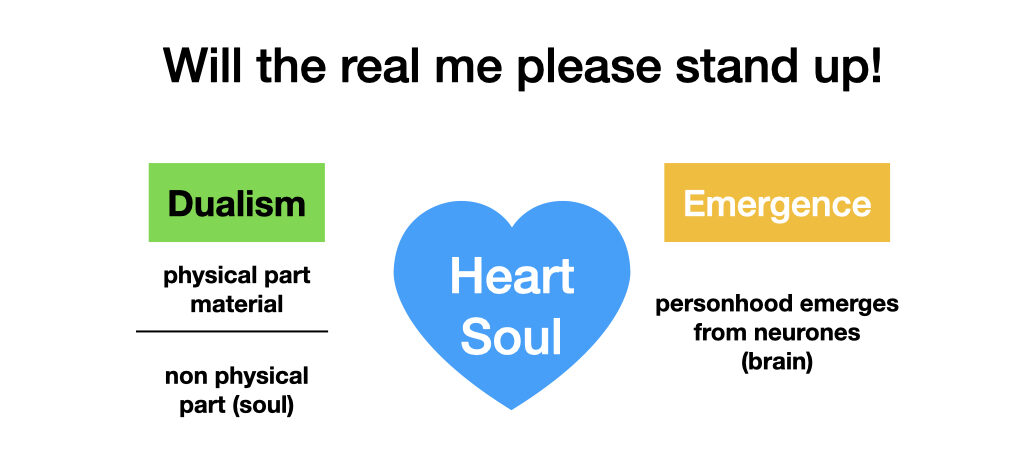What is the soul?
More than matter
Some would see our brains as simply a computer made up of cells, rather than silicon chips, that has evolved over time to develop capabilities such as reasoning, moral choice and love. Indeed, the most advanced AI systems are built on mathematical models called neural networks inspired by how the brain works. some.
Soul in the bible
The Hebrew word nepeš, translated ‘soul’, occurs over 780 times in the Old Testament. Although often meaning simply the essence of life or the act of breathing, the Hebrew system of thought does not distinguish between ‘body’ and ‘soul’. It’s best viewed as the inner self, as opposed to the outward appearance. In this sense, then, the soul is the real me, and part of this notion is alsothe idea that it’s the soul that is conscious and enables me to know that I am me.
Substance dualism
 The precise manner in which God gave us a soul or consciousness is less important than the fact that he did. Christians have traditionally argued for a substance dualism view from the early church fathers, with the consequence that the soul is understood as a metaphysical part that lives for ever and will be reunited with the body when we’re resurrected.
The precise manner in which God gave us a soul or consciousness is less important than the fact that he did. Christians have traditionally argued for a substance dualism view from the early church fathers, with the consequence that the soul is understood as a metaphysical part that lives for ever and will be reunited with the body when we’re resurrected.
Those who tend to a substance-dualism view will likely find it easier to believe that we can never develop a truly general AI, let alone a super intelligence, because we cannot define it in order to encode it.
Scientific naturalism & the soul
Scientific naturalism avoids any explanation that would allow or require a supernatural or metaphysical dimension, as would be the case in substance dualism. It proposes the idea that consciousness, or the ‘soul’ of man, emerges from the firing of the neurones in our brain as a child develops and is exposed to its environment (monism).
A monistic view of the soul is problematic in that it’s inevitably reductionist and does not allow explanation of how a ‘higher’ level emergent consciousness can control the physical components from which the soul itself is supposedly derived.
A naturalist, or perhaps someone who believes that the soul emerges over time, may find it perfectly reasonable to believe that it’s only a matter of time before we can create a self- learning algorithm capable of simulating the emergent soul and becoming conscious.
Hybrid monism & dualism
While a pure monism view of the soul or consciousness might be rejected by Christians, some favour a hybrid view or a body–soul duality that tries to avoid the inevitable reductionism of pure monism. This idea comes in varying forms but one view expressed by John Polkinghorne is that ‘the pattern that is my soul develops as my character forms and my experiences, understanding and decisions mould the kind of person that I am’. He argues that ‘this way of understanding the soul implies that it does not of itself possess an intrinsic immortality’ but that it dissolves at death with God memorising it so that is is rejoined to the physical body at our resurrection.
Beyond understanding
What’s clear is that we’re still some way from being able to explain the soul and consciousness in any more a coherent way than did the early church fathers. Perhaps that’s because it’s impossible to define the metaphysical in terms that we can grasp, even with the notion Polkinghorne uses, that God can memorize the neuronal pattern that is me.10 This should not surprise us, because in our endeavour to rationalize everything we can be in danger of losing the mystical or unfathomable.
A Christian reality
None of these speculations or proposed explanations for the soul takes away from the reality for the Christian that personhood entails being made in God’s image, and that this is part of the inner self, the soul or consciousness
References
J. Polkinghorne, Exploring Reality (London: SPCK, 2005), p. 44,49.